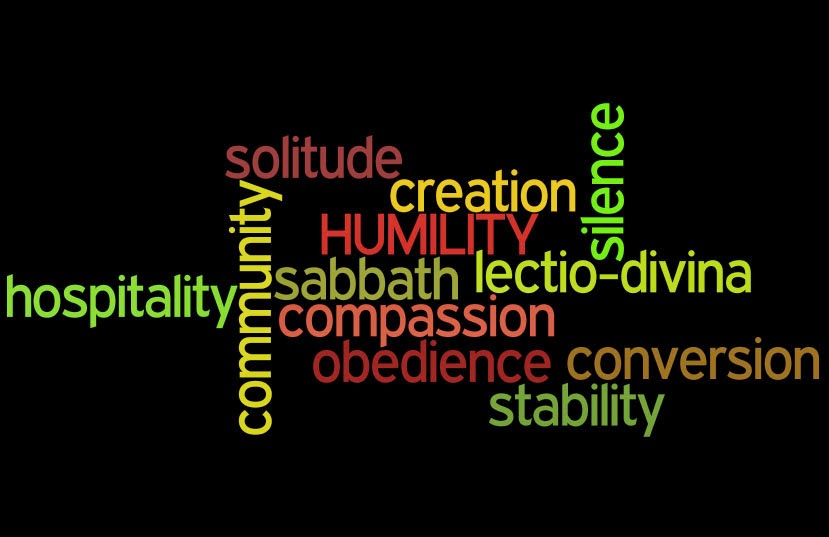EACH MONTH IN A MONK IN THE WORLD WE ARE LEARNING THE PRINCIPLES OF CHRISTIAN MONASTICISM AND HOW WE CAN APPLY THEM TO OUR LIVES OUTSIDE THE MONASTERY WALLS.
There are times when good words are to be left unsaid out of esteem for silence. ~ The Rule of Benedict
Words, words, words… They are everywhere! Billboards, sides of buildings, flashing street signs, bumper stickers in traffic, even the sky isn’t immune with its skywriters and planes tugging advertisement banners. The plethora of words in our world dilute their meaning to the point of overload and burnout!
Where in the world can one go to find silence?
The one who sits in solitude and quiet has escaped from three wars: hearing, speaking, and seeing; yet against one thing shall he continually battle: that is his own heart. ~ Anthony of Egypt*
As our body needs rest, our spirit needs silence for our inner life to grow. When we keep out the weeds (noise) the garden of our soul can flourish. Too many words can hinder our relationship with God, preventing us from hearing the most important Word of all!
Spiritual growth requires insights that only solitude and silence can provide. No one can do this work for us. We must be intentional to build times of silence into our day. It won’t happen otherwise.
In Buddhist countries children routinely spend time with monks and are taught to sit in the lotus position and learn to meditate. Quaker communities also have silence as a regular part of their daily routine.
Who is teaching us or our children how to sit in silence? Instead of hiding away in our prayer closet we must include our children and grand children in our practice of silence. They will learn best by watching our example.
Silence is an indispensable discipline in the spiritual life. It is our portable monastic cell that we take with us into the world to minister to others.
The Way of the Heart: Connecting with God Through Prayer, Wisdom, and Silence by Henri J.M. Nouwen
Finding Sanctuary: Monastic Steps for Everyday Life by Abbot Christopher Jamison*
The Path of Life by Cyprian Smith OSB
The Rule of Benedict Edited by Timothy Fry, OSB
The Oblate Life Edited by Gervase Holdaway OSB





